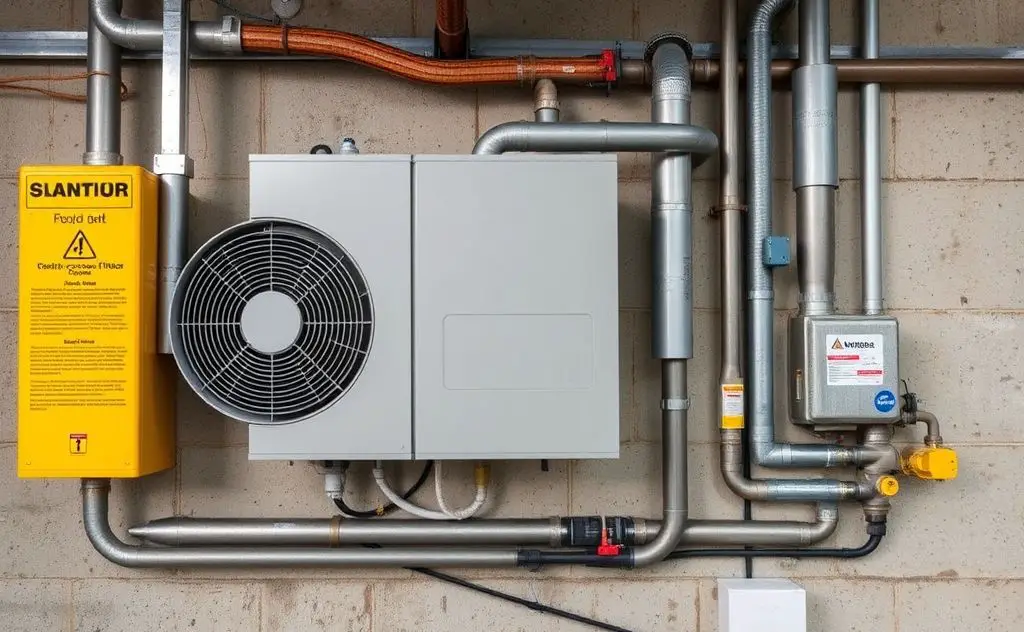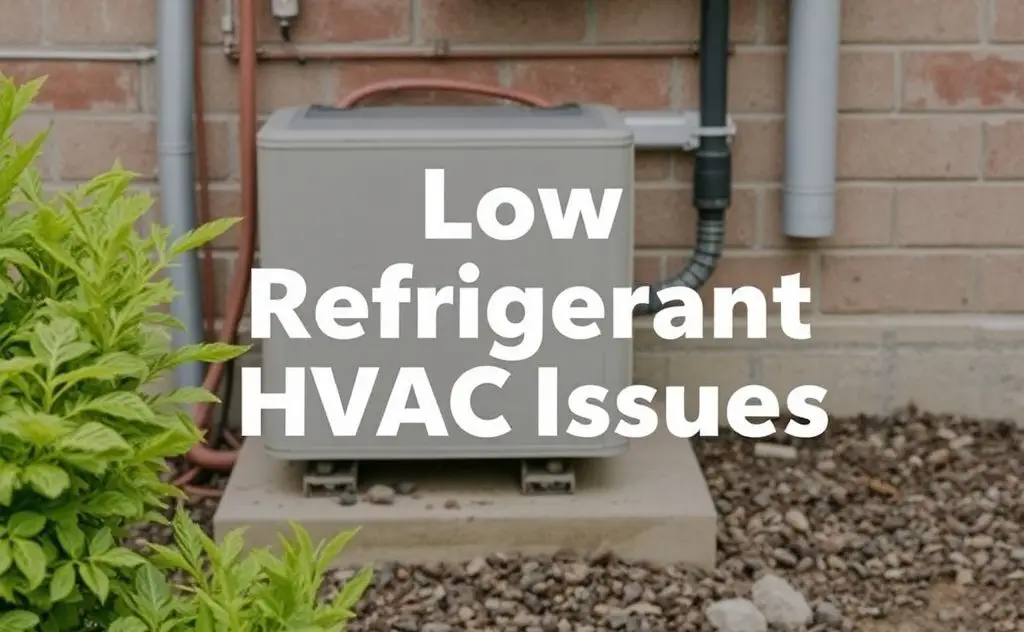When HVAC is low on refrigerant, it leads to reduced cooling efficiency, increased energy bills, and potential compressor damage if not addressed promptly.
Low refrigerant levels can cripple your HVAC system’s performance and lead to costly repairs. Recognizing the early signs of refrigerant loss helps prevent compressor failure and maintain cooling efficiency.

How Refrigerant Works in Your HVAC System
Refrigerant is the lifeblood of your air conditioning system, circulating through copper coils to absorb and release heat. The process involves:
- Absorbing heat as low-pressure gas in evaporator coils
- Compressing into high-pressure liquid
- Releasing heat through condenser coils
- Expanding back to low-pressure gas to repeat the cycle
Modern systems use environmentally friendly HFC refrigerants like R410A, replacing older R22 systems phased out by EPA regulations. Built-in gas heaters follow similar principles for heating efficiency.

Top Symptoms of Low Refrigerant
1. Reduced Cooling Capacity
Your AC struggles to reach set temperatures, running constantly without proper cooling. Air from vents feels lukewarm instead of cold.
2. Frozen Evaporator Coils
Low refrigerant pressure causes coil temperatures to drop below freezing, forming ice that blocks airflow. This creates a vicious cycle of worsening performance.
3. Soaring Energy Bills
System runtime increases by 30-50% as the unit works harder to compensate for refrigerant loss. Monthly energy costs spike noticeably.
4. Hissing or Bubbling Noises
Audible refrigerant leaks sound like:
| Sound | Refrigerant State |
|---|---|
| Hissing | Gas escaping |
| Bubbling | Liquid leaking |
5. Compressor Overheating
The heart of your AC system fails when refrigerant levels drop too low. Compressor replacement often costs more than a new unit.
6. Increased Humidity
Proper dehumidification requires cold evaporator coils. Low refrigerant leads to muggy indoor air and potential mold growth.
7. Short Cycling
The system turns on/off frequently as it struggles to maintain pressure, wearing out components prematurely.
Why Refrigerant Levels Drop
Unlike fuel, refrigerant isn’t consumed – it circulates indefinitely in a sealed system. The only causes of low levels are:
- Leaks: Most common at joints, valves, or evaporator coils
- Improper installation: Undercharged during setup
- Component failure: Cracked coils or damaged lines
According to Department of Energy studies, refrigerant leaks account for 25% of all AC service calls.
Immediate Actions When You Suspect Low Refrigerant
For Homeowners:
- Turn off the system to prevent compressor damage
- Allow frozen coils to thaw completely
- Check air filters (dirty filters exacerbate the problem)
For HVAC Technicians:
- Perform leak detection with electronic sensors or UV dye
- Repair leaks before recharging
- Measure superheat/subcooling for proper charge
- Consider upgrading thermostat controls for better monitoring
Long-Term Solutions
For older R22 systems, the EPA recommends upgrading to R410A equipment rather than paying for increasingly expensive refrigerant. Modern systems offer:
- 30% better energy efficiency
- Reduced environmental impact
- Improved humidity control
- Smart diagnostics for early leak detection
The EPA Section 608 regulations require proper handling of refrigerants by certified technicians only. DIY recharge attempts often cause more harm than good.
